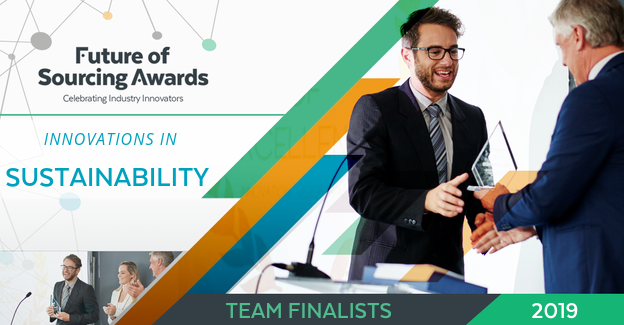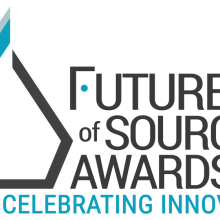This October, the Future of Sourcing Awards will celebrate organizations and individuals that have shown innovation, leadership and transformation in categories that are critical to the sourcing industry. Interviews with the finalists provide helpful insight about their projects, the problem they sought to solve and the impact to their organizations. Below, read about Fannie Mae's Green Financing, which aims to improve energy and water efficiency of multifamily properties through mortgage financing.
Innovations in Sustainability: Fannie Mae
Fannie Mae’s corporate mission is to provide access to reliable, affordable mortgage financing while driving smart innovations in mortgage finance. In 2018, we provided $512 billion in liquidity to the mortgage market, which enabled the financing of approximately three million home purchases, refinancing or rental units. Keenly aware of our role in the American housing market, Fannie Mae commits to driving sustainability through our lending and our Multifamily Green Financing project best demonstrates this commitment.
The Fannie Mae Green Financing business aims to improve energy and water efficiency of multifamily properties through mortgage financing, or Green Bonds. Fannie Mae offers incentives of lower interest rate and free energy audit if borrowers commit to property improvements that reduce the property's annual energy consumption by at least 15 percent and an additional 15 percent consumption savings from a combination of energy and/or water savings. To implement this initiative and make building owner’s commitment a reality, a standard framework of sustainability measures and the ability to report and audit results is critical.
Corporate Procurement supported this initiative by leading a sourcing process to gather innovative ideas from the market, identify a capable supplier, facilitate supplier collaboration, and assist the Multifamily Green team in defining the best approach for this new scope of service. Corporate Procurement’s contribution to the corporate sustainability initiatives and collaboration with internal business customers enabled them to achieve their strategic business objectives.
When Fannie Mae first launched its Green Bond issuance in 2012, a significant amount of efforts was put in the areas of creating innovative financing solutions that would incorporate sustainability concepts into traditional mortgage lending. Reporting and tracking of building owner’s fulfillment of their sustainability commitments, however, was mostly dependent on self- reporting, and we didn’t have an efficient way to track and validate.
From 2012 to 2018, Fannie Mae issued a total of $51.7 billion of Green Bonds. As stated in Fannie Mae’s Green Impact Report, “ energy and water efficiency measures bolster economic vitality for communities through both direct and indirect benefits, such as the creation of jobs needed to perform the retrofitting activities, manufacturing of the materials used to retrofit, and even spending within a local community by workers employed to complete green building and retrofitting activities.” The projected environmental, social and financial impact are as follows:
Environmental benefits through significant energy, water and greenhouse gas emission reduction: saving an estimated 4.3 billion kBtu of source energy annually, 5.9billin gallons of water annually and reducing greenhouse gas emissions by 287,000 metric tons.
Social benefits for families and individuals through reduced expenses: saving $72 million annually for families and individuals across the U.S., equivalent to an average 10% on their utility bills or approximately $145 annually.
Financial benefits for U.S. economy and owners: an estimated 170,000 jobs created or supported in the U.S. economy to build and/or retrofit over 550,000 units; and, owners projected to save nearly $33 million annually through retrofitting their properties.
Since Fannie Mae started the journey of Green Financing in 2012, the market has been growing increasingly aware of the environmental and social impact of the corporate world and demands more accountability. In response, the company has created new green mortgage financing processes, and has made sustainability part of our ongoing strategy and priority enterprise wide.
Corporate Procurement will continue our support for the corporate sustainability initiative by partnering with internal business customers. We are also looking for opportunities to extend the sustainability requirements to our extensive supplier network to influence supplier behaviors and have a greater impact in sustainability, among other measures.
First, commitment to sustainability is a significant undertaking that is not only good thing to do, but it is good for our overall business. But in order to be successful, we needed to ensure that our objectives, at the enterprise level, aligned with our corporate strategy. Second, identify suppliers who share your vision. Suppliers are a great resource for industry insights and innovative solutions. Build partnerships and work together to come up with the best approach and innovative ideas.
In today’s world, both individuals and business corporations are increasingly aware of their social and environmental responsibilities, and many are taking actions to influence the market and drive positive changes. Fannie Mae is a leader in driving Green Financing in the Multifamily lending market and has already generated a significant impact. Now the added capabilities and dedicated resources to report and audit sustainability results will allow us to better enforce our sustainability commitments. The dedication to sustainability and the ability to make it happen will create a competitive advantage for Fannie Mae in the eyes of investors, borrowers, suppliers as well as our future employees.







